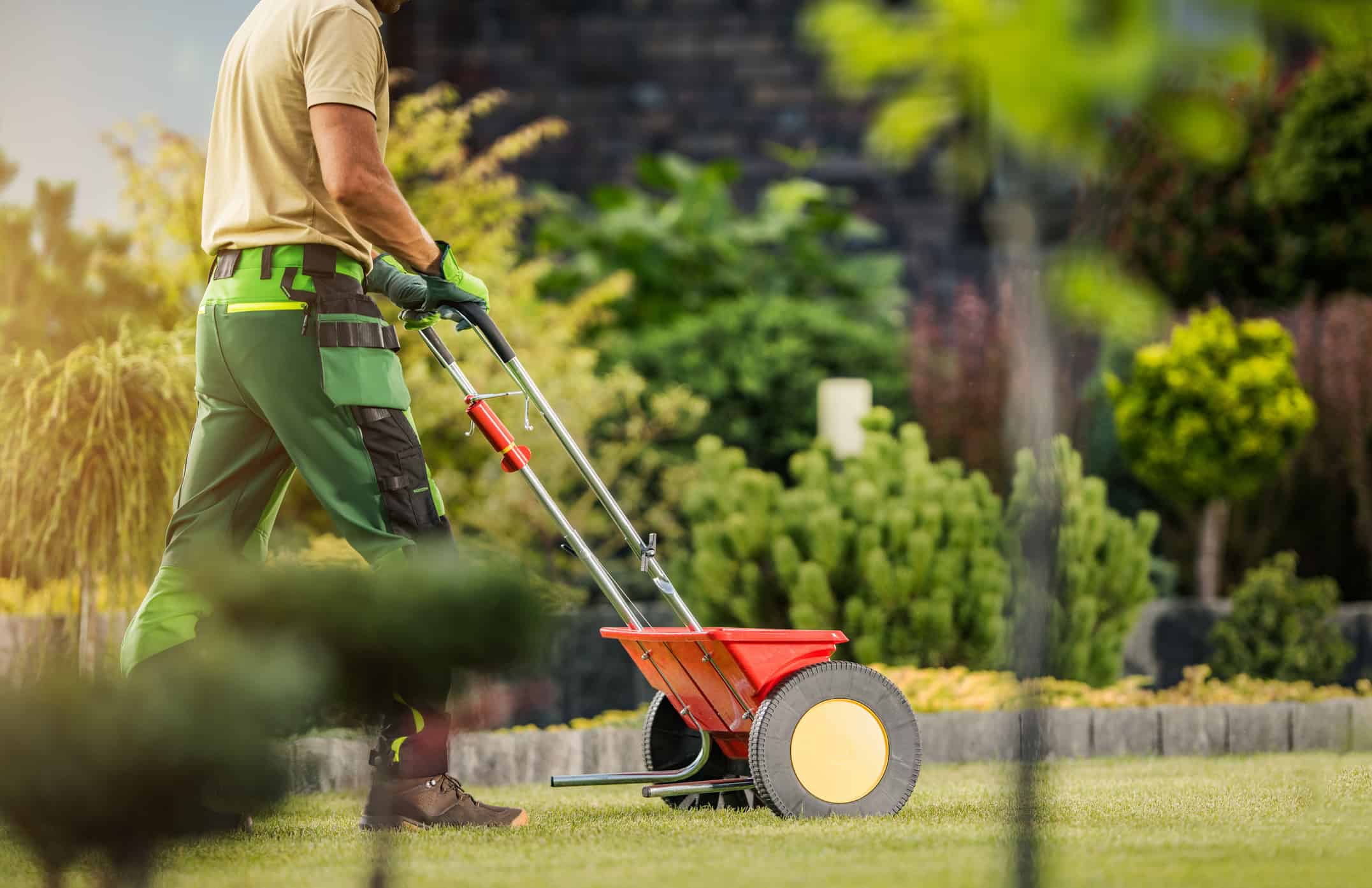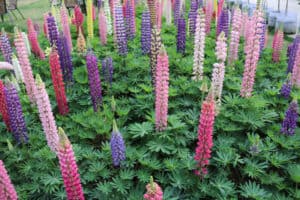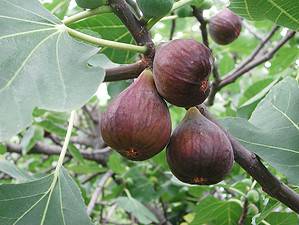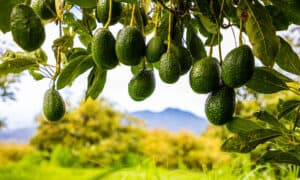Most people prefer organic options, but there are many reasons to buy synthetic fertilizer — especially if you’ve been struggling with disappointing harvests or a sad-looking garden for a while. Organic fertilizers simply can’t solve every issue, and they may not be the best choice for your garden.
With that said, here are the top five reasons to buy synthetic fertilizers.
5 Reasons to Buy Synthetic Fertilizer
Organic fertilizers may be more eco-friendly, but synthetic fertilizers certainly have their own unique advantages. They may be an especially good option if you’re planning to take your produce to market, if organic fertilizers are too expensive for your budget, or if they’re simply not helping your garden get that much-needed glow-up.
We’ll explain why synthetic fertilizer may be more suitable in these and other scenarios in more depth below.
1. Synthetic Fertilizers Are More Affordable
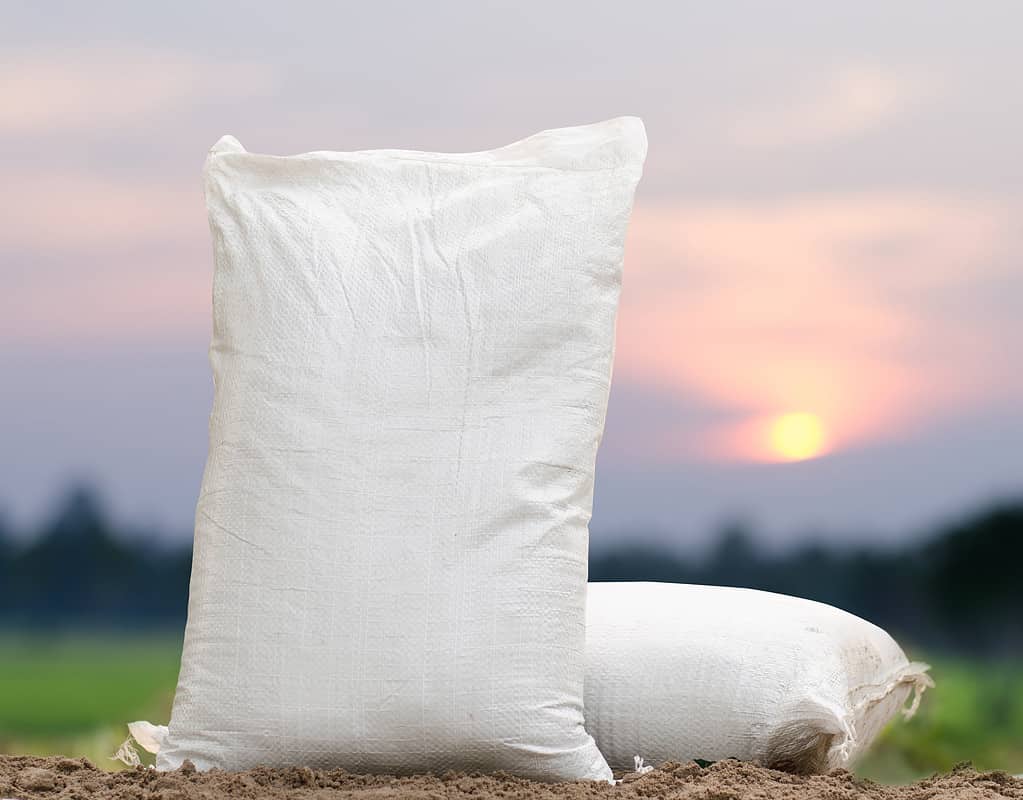
If you’re looking for a more budget-friendly option, you’ll probably want to go with synthetic fertilizers.
©Singkham/iStock via Getty Images
Synthetic fertilizers are usually cheaper than organic ones (unless you’re using homemade compost, of course). You can expect to pay between $100 and $300 for a 50-pound bag of synthetic fertilizer, while the same amount of organic fertilizer costs between $200 and $500.
Based on the above pricing ranges, these would be the average prices for synthetic and organic fertilizers:
- The average price of a 50-pound bag of synthetic fertilizer — $200.
- The average price of a 50-pound bag of organic fertilizer — $350.
So, synthetic fertilizers are usually significantly more affordable than organic options.
However, keep in mind that synthetic fertilizer can also decrease soil fertility over time, potentially leaving you with higher running costs in the long run. It’s also worth noting that, today, there are some relatively cheap organic fertilizers that you can find online, so the price may not be that big of an issue anymore — but the effectiveness of such cheaper products may be.
2. Synthetic Fertilizer Is More Convenient
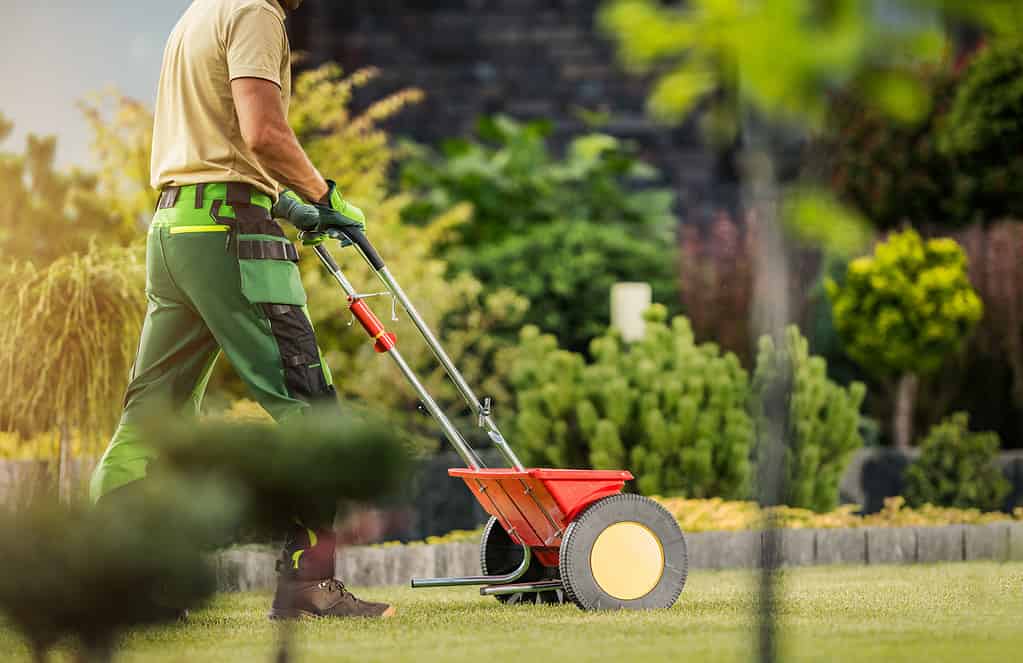
Since synthetic fertilizers usually come in easily-applicable forms, such as pellets or granules, they’re almost always easier to distribute than their organic counterparts.
©welcomia/iStock via Getty Images
Synthetic fertilizer is typically more convenient to buy and apply. It is usually readily available in greater amounts than organic fertilizer, plus easily applied with a fertilizer spreader.
Organic fertilizer, on the other hand, often comes in a raw form, which makes distribution slightly more challenging. However, accidental spills or overapplication of organic fertilizers shouldn’t damage your garden, while synthetic fertilizer can cause burning if inappropriately applied.
3. Synthetic Fertilizers Give Fast Results

Whether you grow flowers, vegetables, or herbs, synthetic fertilizers can help you get your desired results faster.
©suesmith2/iStock via Getty Images
Synthetic fertilizers usually contain higher amounts of nitrogen, potassium, and phosphorus, and release nutrients much more rapidly than organic fertilizers. Because of this, they also typically yield faster results. You can see visible improvements in just a few days.
4. Synthetic Fertilizers Are More Predictable
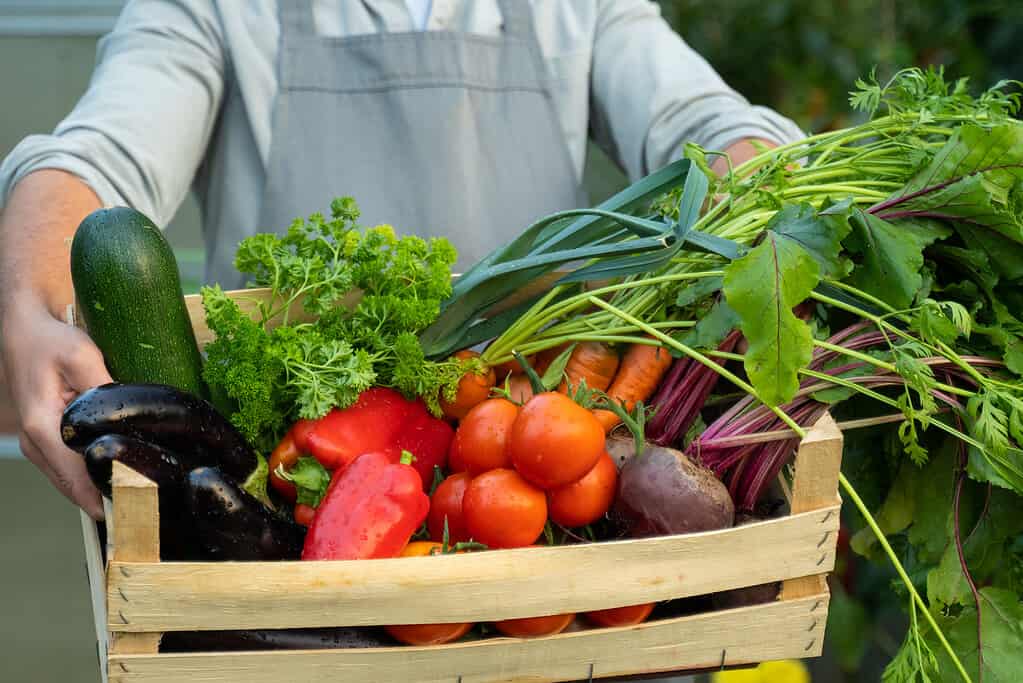
Synthetic fertilizers are still the best option for ensuring abundant harvests.
©Viktoria Korobova/iStock via Getty Images
Besides yielding results faster, synthetic fertilizers are also likely to make them more predictable. They have a highly controlled nutrient content specifically made for different crops and soil types, leading to more reliable outcomes.
This is especially important for commercial agriculture, where it’s essential to hit specific crop yield and quality standards.
5. Synthetic Fertilizers Offer Custom Solutions
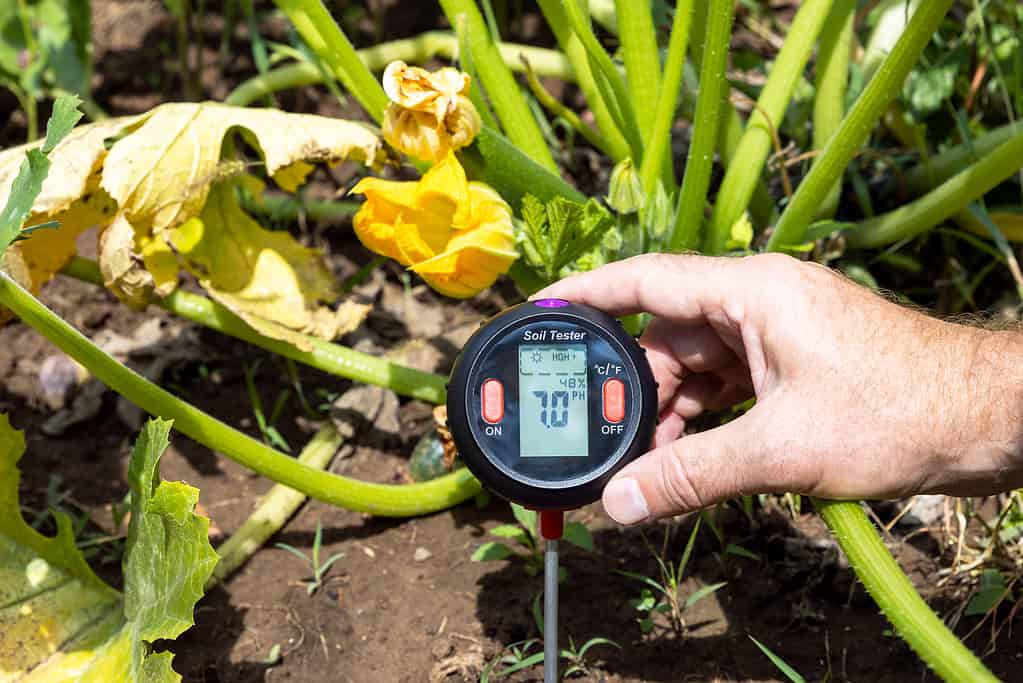
Synthetic fertilizer is also your best bet for fighting specific soil issues.
©Mihajlo Maricic/iStock via Getty Images
As hinted above, synthetic fertilizers can target specific nutrient deficiencies or soil imbalances. This can help gardeners resolve potential issues faster — and without grueling trial-and-error processes that are often necessary with organic options.
So, Should You Choose Synthetic Fertilizers?
Whether you’ll choose synthetic or organic fertilizers is completely up to you. However, there are several scenarios in which synthetic fertilizer is the better option out of the two.
As mentioned, you may need to use synthetic fertilizer to ensure good crop yield and quality if you plan to sell your produce. Even if that’s not the case, you may still need synthetic fertilizers if you’ve been struggling with disappointing harvests for a while. You can use them as a temporary solution until you get your garden back on track and switch to organic options afterward.
Of course, synthetic fertilizers certainly have their drawbacks as well. Their high nitrogen and phosphorus levels can have a negative effect on the environment. Other ingredients, such as pesticides and urea, can also directly harm animals that consume synthetically fertilized grass or plants.
Beyond that, synthetic fertilizer can also damage your soil’s fertility in the long run, while incorrect application can burn plants.
So, the bottom line is this: synthetic fertilizer is sometimes your best best. If you opt for it, however, make sure to distribute it correctly and prevent any spillage, overapplication, or runoffs. Also, if you can, try to prevent animals from consuming your crops (which you’ll probably want to do anyway).
Summary of the 5 Reasons to Buy Synthetic Fertilizer for Your Garden
| Reason | |
|---|---|
| #1 | Synthetic Fertilizers Are More Affordable |
| #2 | Synthetic Fertilizer Is More Convenient |
| #3 | Synthetic Fertilizers Give Fast Results |
| #4 | Synthetic Fertilizers Are More Predictable |
| #5 | Synthetic Fertilizers Offer Custom Solutions |
Thank you for reading! Have some feedback for us? Contact the AZ Animals editorial team.

